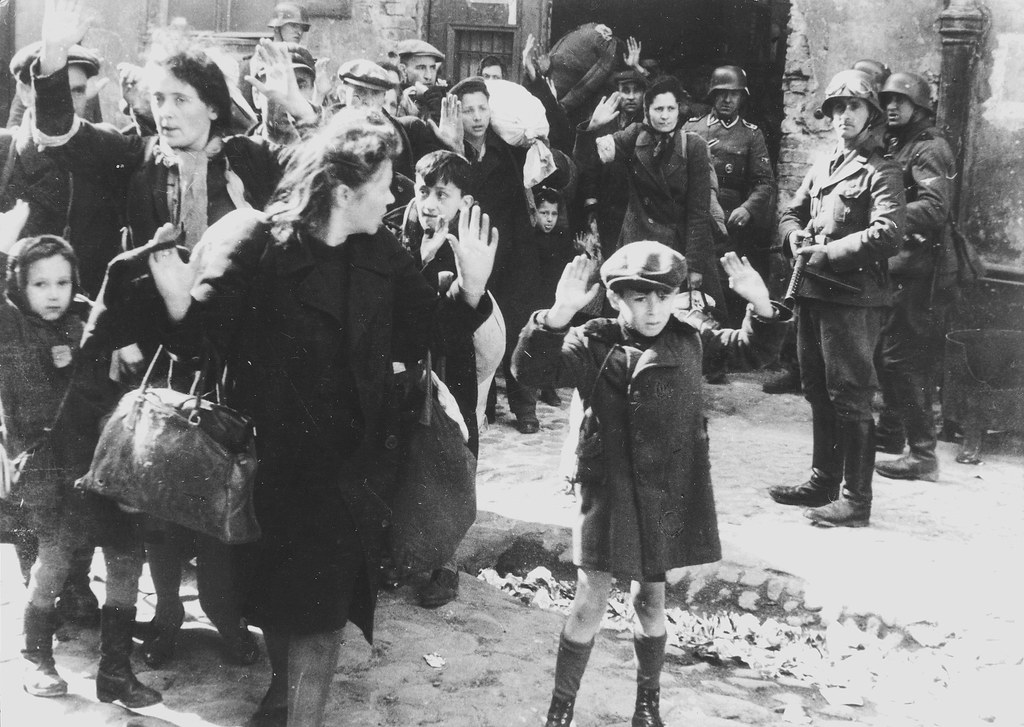The history of Zionism is increasingly coming under scrutiny, especially regarding the nuanced and often controversial relations between certain Zionist leaders and the Third Reich. This subject is sensitive and carries important implications for both Holocaust studies and the broader comprehension of Zionist movements. This chapter in Jewish history is marked by moral complexities, particularly as some Zionist figures engaged in negotiations with Nazi officials to facilitate Jewish immigration to Palestine during a time of extreme persecution. A notable example is the Ha’avara Agreement, which highlights these negotiations, allowing for the transfer of assets from German Jews to Palestine, thus raising significant ethical questions about collaborating with a regime bent on genocide. This relationship has sparked passionate debates within Jewish communities and among historians, challenging established narratives of resistance and complicity during one of history’s darkest epochs.
The Ha’avara Agreement, enacted on August 25, 1933, stands as a significant yet contentious pact forged between high-ranking Nazi officials, including Hermann Göring and Adolf Eichmann, and prominent Zionist leaders such as David Ben-Gurion. Its primary goal was to facilitate the immigration of German Jews to British Mandate Palestine. This agreement permitted Jewish emigrants to transfer a portion of their wealth by purchasing German products, which were then sold in Palestine. While some contend that the agreement was a desperate measure to save Jewish lives, the reality is more complex. At that time, Jewish individuals were beginning to encounter signs of discrimination, but to assert that the entire agreement was solely aimed at preventing loss of life oversimplifies the situation.
Under this arrangement, those planning to emigrate could deposit funds in German banks to buy goods for export. Upon arrival in Palestine, the proceeds from these sales would be credited to the emigrants, providing crucial financial support for starting anew. Between November 1933 and December 1937, this agreement led to the export of goods valued at approximately $22.5 million in 1938 currency.
However, the Ha’avara Agreement effectively undermined international efforts to boycott Nazi products and, by extension, the regime itself. This compromise incited heated discussions within Jewish communities regarding the ethics of cooperating with a genocidal government.

The context of the Ha’avara Agreement was filled with contradictions. The Nazi regime perceived Zionists as part of a broader conspiracy threatening nations, including Germany. Zionists were viewed as willing to go to any lengths to achieve their objectives, even at the expense of their own communities. This perception stemmed from ideologies that scapegoated Jews for societal issues, portraying them as a cohesive force undermining national stability.
Theodor Herzl, the founder of modern Zionism, acknowledged the complexities of the Jewish struggle in the early 20th century. He noted that Zionists might have to engage with various adversaries, including other Jewish factions, to achieve their goals. This admission underscored the intricate dynamics within the Jewish community. In a troubling parallel, both Herzl and Hitler articulated their own versions of the “Jewish problem.” For Herzl, this meant the urgent need to establish a homeland for Jews, whom he believed were uniquely capable of governing the area.
As the agreement conflicted with the global boycott of Nazi goods, Zionist leaders faced accusations of colluding with the enemy. This created significant rifts within Jewish communities; some argued that saving lives took precedence over the boycott, while others maintained that any engagement with the Nazi regime was fundamentally immoral. Prominent figures like Martin Buber opposed the agreement, suggesting it primarily benefited wealthier Jews while leaving poorer individuals without viable escape options. Many vehemently criticized the agreement as potentially endorsing Nazi policies, which could bolster their financial power.
Opposition to the Ha’avara Agreement was also pronounced among non-Zionist and anti-Zionist factions, particularly those aligned with Jewish labor movements and socialist parties. They viewed the arrangement as a betrayal of international boycott efforts, which they believed could exert economic pressure on the Nazis. In 1933, the American Jewish Congress and other groups organized a global boycott of German goods, aiming to weaken the Nazi regime economically. This boycott represented a unified stand against the Nazis, serving as both protest and rallying cry for Jewish solidarity.
After the war, during Eichmann’s trial in Jerusalem, he argued that cooperation between certain Zionist leaders and the Nazis illustrated a willingness to negotiate for Jewish emigration, framing it as a betrayal of Jewish interests. He claimed these leaders prioritized their political goals over the welfare of the broader Jewish community, attempting to shift responsibility for the Holocaust onto Jewish leaders themselves. Eichmann cited the Ha’avara Agreement as evidence of how Zionist leaders were ready to engage with the Nazis to achieve their own objectives, referencing meetings and correspondence between Zionist organizations and Nazi officials. He provocatively asserted that had he been born Jewish, he would have been a fervent Zionist.

Hannah Arendt, in her work Eichmann in Jerusalem: A Report on the Banality of Evil, depicted Eichmann as a bureaucrat rather than a monstrous figure. She argued that his testimony revealed the complicity or ineffectiveness of many Jewish leaders, directly challenging the narrative that Ben-Gurion sought to promote. Ben-Gurion’s role in establishing the Ha’avara Agreement adds an additional layer of complexity to this historical narrative.
Avraham Stern, the leader of the Lehi (Stern Gang), faced significant backlash for his attempts to negotiate with the Nazis during World War II. Many Jewish leaders and organizations regarded his overtures as both morally reprehensible and strategically flawed, believing that collaborating with a regime responsible for the systematic genocide of Jews was an unforgivable betrayal. Stern’s willingness to engage with the Nazis, even in hopes of establishing a Jewish state, was seen as a perilous gamble that disregarded the immense suffering inflicted by the regime.
Stern’s collaboration drew ire from non-Zionist and anti-Zionist factions within the Jewish community, who deemed any negotiation with the Nazis unacceptable. Groups like the Bund and Agudath Israel condemned his approach, arguing that it diluted the urgency of combating Nazi oppression and diverted attention from the immediate needs of Jews in Europe. Stern’s actions also heightened internal divisions among Jews, as many feared that such collaboration would further legitimize Nazi claims of a “Jewish conspiracy,” portraying Jews as secretly manipulating global affairs and undermining nations to achieve domination.
The Katzner Affair, centered on Jewish businessman Joel Brand’s negotiations with Nazi officials during World War II, further illustrates these ethical dilemmas. In 1944, Brand, representing the Jewish Rescue Committee in Hungary, was approached by the Nazis with a shocking proposal: in exchange for substantial financial concessions and supplies, the Nazis would allow the emigration of a significant number of Jews, including those from Hungary. This deal, known as “blood for goods,” aimed to transfer Jews to Palestine but raised grave ethical concerns about negotiating with a regime responsible for mass murder. Brand’s attempts to secure the rescue of Jews through these negotiations drew both support and criticism, reflecting the desperate circumstances facing Jewish communities.

As Brand traveled to Istanbul to negotiate with the Allies, the deal faced immense backlash and scrutiny. Ultimately, the negotiations failed, and Brand was arrested by the British upon his return to Palestine, igniting a fierce debate within the Jewish community about the morality and effectiveness of such desperate measures.
The collaboration between certain Zionist leaders and the Nazis during the Holocaust remains a deeply contentious issue. The Ha’avara Agreement exemplifies the ethical implications of engaging with a genocidal regime. Criticism from both within the Zionist movement and from non-Zionist factions highlighted divisions in strategy and ideology, reflecting the urgency and despair that characterized Jewish responses. Leaders like Avraham Stern, who sought negotiations with the Nazis, faced significant backlash for their actions, which many viewed as a betrayal of the Jewish community and its broader interests.
The Katzner Affair also illustrates the ethical challenges inherent in negotiations for rescue during the Holocaust. Joel Brand’s attempt to broker a deal with the Nazis ignited fierce debate within the Jewish community regarding the legitimacy of collaborating with a regime responsible for mass extermination. These instances of negotiation and collaboration provoke profound questions about morality, responsibility, and the complexities of survival in a time of unprecedented crisis. Ultimately, the legacy of these actions serves as a stark reminder of the painful choices faced by individuals and leaders amid one of history’s darkest chapters, compelling us to reflect on the broader implications of their decisions.
Recently, historians examining the collaboration between some Zionist leaders and the Nazis have faced accusations of antisemitism, often driven by efforts from the Israeli government to shape the narrative surrounding these events. This dynamic intricately links the topic to Israel’s national identity, complicating open discourse about the complexities of that era. Such sensitivities underscore the pressing need for continued critical inquiry into these historical events, free from accusations of bias or attempts to deny reality.
Understanding the Holocaust and the varied responses within the Jewish community necessitates a comprehensive approach that embraces multiple perspectives. Scholars like Tom Segev and Lenni Brenner have shed light on the internal debates among Jewish leaders regarding the Ha’avara Agreement and other collaborations. Engaging with these discussions allows for a deeper understanding of the moral dilemmas faced by Jewish leaders at the time, revealing the pressures they navigated in their efforts to save lives amid genocide. History encompasses a broad spectrum of human emotion and should be presented as such. Through rigorous and nuanced historical inquiry, we can better comprehend the enormity of events like the Holocaust and honor the memory of those who suffered, ensuring that their stories are not overshadowed by political agendas.





